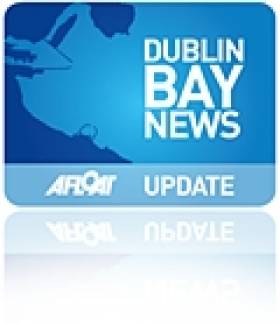Displaying items by tag: Darina Tully
Heritage Week: Maritime Lectures In Dun Laoghaire
12.30 – 1.30 pm. Neutral Ireland's Role in the Sinking of the Bismarck, May, 1941 By Dr. Michael Kennedy, Executive Editor, Documents on Irish Foreign Policy, Royal Irish Academy.
1.30 – 2.30 pm. Traditional Boats of Ireland. - Wooden workboats from all the Maritime Counties of Ireland. By Darina Tully, Lecturer and Maritime Archaeologist.
2.30 – 3.30 pm. Too Many Bags in the Lifeboat. A Lifeboat Tragedy at Bray 1876 By James Scannell, Lecturer and P.R.O of the Old Dublin Society.
4.00 – 5.00 pm. Maritime Guinness, The Ships, Yachts and Barges of the Guinness Dynasty. By Dr. Edward Bourke, Diver, Maritime Historian and Author of "Guinness, the Family, the Business and the Black Stuff"
5.00 – 6.00 pm. Ireland's Armada Heritage. The Story of the Spanish Armada of 1588. The discoveries of the wrecks on the Irish Coast and the recovery of artifacts. By Cormac Lowth, Lecturer, Author and Diver.
Further information Barney Yourell 087 900 7466 No seminar charge – donations accepted. Information in general on the Maritime Institute of Ireland can be found on http://www.mariner.ieand for other nationwide events of the Heritage Week visit www.heritageweek.ie
- Events
- Dun Laoghaire Harbour
- M.I.I.
- Dun Laoghaire Harbour News
- Event news
- National Heritage Week
- Heritage Week
- Maritime Lecture Seminar
- Spanish Armada
- Eblana Centre Dun Laoghaire
- Maritime Insitute of Ireland
- Bismarck
- Traditional Irish wooden boats
- Guiness ships
- Guinness barges
- Darina Tully
- Irish heritage boats
























































